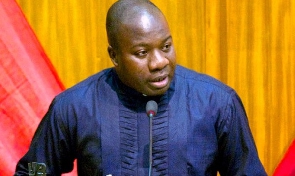Tema Residents on Friday expressed divergent positions on calls for a review of retirement age for public service workers from 60 to 65 years.
This was proposed by Mr Mahama Ayariga Member of Parliament for Bawku Central.
Mr Yusif Alhassan, ex-soldier of the Ghana Armed Forces, touted the recommendation stressing, “I think if the person is 60 years and strong and can work why not, he can be considered and be at post for the extra five years”.
He however expressed concerns about age-cheating during the point of entry into the employment circles, “some people reduced their ages before entering, official records indicate that the person is 55 years, but because one cannot cheat nature, where they used wrong age, so at age 55 the person is weak, looked sick and so on, then have to be retired”.
Mr Alhassan, who is a student Minister of the Presbyterian Church, Prince of Peace Congregation, Community 2, therefore, proposed that the recommendation should not be holistic, but conditional and optional.
Mr Edward Tetteh Debrah, a retiree, supported the recommendation but suggested that measures should be put in place to ensure that people enter the public service with accurate age.
He said there were some retirees who were strong but idling in the house, wasting the energy, “if given the privilege they would be productive to the nation”.
Mr Debrah however noted that “the Army and Police have age limit, which they depend on when applying, you might have the job all right, but during training one will be exposed and cannot cheat nature”.
Mrs Vivian Owusu-Darko who is in active service, said the longer on the job, the more experienced the person becomes which is good for the job; “we must therefore use the last five years between 60 to 65 years to tap from the men and women of experience.
“Experience has nothing to do with academic qualifications, it is what a person has gathered from the job, training, meetings, solving problems and other encounters over the years.
“It must not be taken away simply because the person is 60 years old, the organization must pull-out what it invested in the person before they finally leave at 65”.
The youth on the contrarily told the GNA that the “old folks are blocking our employment opportunities so when they hit 60 years, must give way for fresh modern ICT inclined, with youthful zeal to take over”.
They described the senior citizens as old manually operated vehicle on the speed lane on the motorway, “they cannot compete with the fast automatic modern cars…they impede the flow of traffic.
“In this fast advancing technological world, Ghana needs the youth to build the country, in any case we give the elders the opportunity, they have finished the race and must hand over the button at age 60 not 65”.
Mr Ayariga during the vetting process by the Appointments Committee in Parliament of the Minister-designate for Labour and Employment suggested, that the retirement age should be revised from 60 to 65 years for persons in the public service of Ghana to include; the prisons, Immigration, Fire Service, Judicial Service, Ghana Education Service among others.
He stated: “I am sponsoring a bill which is proposing that we should amend the 1992 Constitution to extend the compulsory retirement age from 60 to 65.
“We can also say that there should be a contract after 65, but the compulsory retirement age should be 65 instead of 60.”
He said some sections of the 1992 Constitution provided some persons in some public services the opportunity of a five-year contract after retirement.
“Article 190 of the Constitution sets out the public services of Ghana; prisons, Immigration, Fire Service, Judicial Service, Ghana Education Service, all those services and [Article] 191 says that the retirement age is 60.
“Compulsory retirement age is 60 and there was an amendment to [Article] 191, which enabled five-year contract to be given to a retiree subject to certain conditions.
“And also, judicial officers, Article 148 deals with judicial officers and [Article] 150 also says that judicial officers must retire at age 60. There is no amendment that gives a right to contract after age 60,” he said.
The reason for this initiative according to him stems from Ghana’s present life expectancy, which is 64.42 years and can be attributed to the provision of better healthcare.
“Because in 1992 when we set the retirement age at 60, the life expectancy was 57.46 years. Today, life expectancy in Ghana due to improvement in health and infrastructure is 64.42 years.
“We are losing a lot of experienced, healthy and capable people in the public service to retirement,” he added.
Meanwhile, Minister-designate for Labour and Employment, Ignatius Baffour Awuah said thorough analysis must be made before passing a law to that effect.
“If you are looking at the sustainability of pension when you have a shorter working period, it does not really augur well for the health of your pension scheme. When people stay more and work, they accumulate more funds; they are able to retire on a handsome pension than when their working period is short,” he said.
He said review of the retirement age must address the pros and cons associated.
Business News of Saturday, 27 February 2021
Source: GNA

















